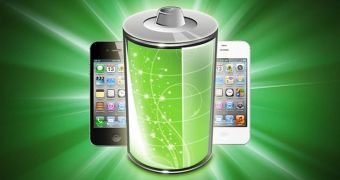Although every iOS release is plagued by reports of battery drainage (sometimes for reasons that don’t necessarily fall in Apple’s jurisdiction), iOS 7.1 seemed to have impacted more users than usual. After applying the iOS 7.1.1 update released earlier this week, some users are seeing their problems addressed.
According to one report, iOS 7.1.1 patches battery drainage on iPhone 5 handsets. Various threads on Apple Support Communities that used to see fresh complaints posted on a regular basis have now dampened. The same goes for a thread that discusses a widely-reported Wi-Fi issue.
Typical customer behavior is to complain when something goes wrong and stay mum when things are going well. You don’t see half as many people taking to the forums to say “my iPhone is working well,” period. They’ll only comment on extremes, like a stellar experience or a really bad one.
Had iOS 7.1.1 delivered new issues, you’d be sure to see new threads emerging with complaints about those particular woes. Although this update has its fair share of reported problems, it appears that none of them is widespread. Isolated cases of loss of sound or iPads not accepting the update are just some of the topics discussed.
However, one problem that we were able to confirm was actually the inability to download said firmware.
Upon noticing that Apple’s servers was not feeding the update to one of our test units, we reported the error that displayed on our iPhone’s screen. Commenters were quick to respond with similar stories. To this day, some haven’t been able to download the firmware.
Earlier this month, a former Apple Genius (a techie position in every Apple retail store) wrote an extensive blog post about iPhone battery drainage and the main culprits that can lead to poor battery life.
Scotty Loveless clarified that in many cases it is neither Apple’s fault nor the user’s. In some cases, it’s the user who mistakenly thinks he/she is helping the situation by killing apps or tweaking settings when, in reality, it’s these particular actions that can actually contribute to the issue.
“By closing the app, you take the app out of the phone's RAM. While you think this may be what you want to do, it's not. When you open that same app again the next time you need it, your device has to load it back into memory all over again,” he explained.
“All of that loading and unloading puts more stress on your device than just leaving it alone. Plus, iOS closes apps automatically as it needs more memory, so you're doing something your device is already doing for you. You are meant to be the user of your device, not the janitor.”

 14 DAY TRIAL //
14 DAY TRIAL //